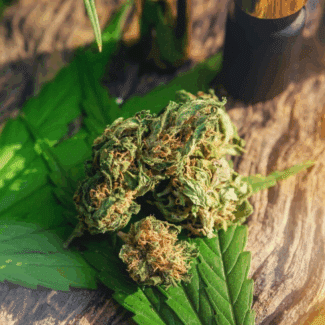California Vape Carts: Compliance Strategies for a High-Risk Market

The California cannabis industry is facing a major challenge around cannabis vapes and consumer safety. Since 2023, brands have been called out and lawsuits filed alleging that certain cannabis companies have intentionally mislabeled their products, forged testing results, and created massive product liability problems for themselves.
Case Studies: 2024 California Vape Cart Lawsuits
The legal landscape for California’s vape cart industry has seen significant developments, particularly highlighted by several key lawsuits in 2024. Examining these 2024 California vape cart lawsuits provides crucial insights into the evolving regulatory challenges and potential liabilities facing businesses in this sector.
Testing Lab Lawsuit Rocks California Market
Two testing laboratories in California, Anresco Laboratories and Infinite Chemical Analysis Labs filed a federal lawsuit against 13 testing labs in California in June 2024. The lawsuit alleges that the labs named in the civil suit had intentionally manipulated test results in order to win business at the risk of consumer safety.
These lawsuits were filed on the heels of a state-ordered recall of West Coast Cure vapes that exceeded safety limits for certain chemicals. Claimant Infinite Chemical tested the vapes the previous September and failed them — only for the vapes to pass safety testing at another lab and end up on the shelves. By the time the state of California issued a recall, the vapes had mostly sold out, posing a health risk to consumers who purchased them.
This lawsuit came on the heels of a report from the Los Angeles Times and WeedWeek, which found that 25 out of 42 tested brands were out of compliance with state safety limits. Infinite and Anresco had filed an astounding 85 contamination complaints with California regulators since October of 2023 while trying to warn consumers.
This is just one lawsuit filed: another was filed in June 2024 against West Coast Cure, the parent company of the recalled cannabis products. These cases, both product and professional liability claims, are still ongoing and could be said to create something of a legal storm for West Coast Cure.
STIIIZY Lawsuits: California and Other States
STIIIZY was sued in a class action lawsuit by former consumers of their vape products. The lawsuit alleges that the company:
- Intentionally marketed their products to teenagers without adequately warning users of the risks
- Underrepresented the THC levels by up to 200%, leading to dangerous reactions from underage consumers, including delusions, hallucinations, and unpredictable behavior, or “cannabis induced psychosis,” potentially creating lasting mental health issues for consumers.
The suit was initially filed in April 2024, with subsequent suits filed as recently as December 2024. Claimants are claiming deceptive marketing tactics and false product labeling.
STIIIZY Class Action Lawsuit
The multiple lawsuits rest on the basis that STIIIZY pods were intentionally misrepresented regarding how strong their THC/ hemp products were with vape flavors and marketing tactics designed to appeal to underage consumers, alleging product liability claims. Targeting minors with cannabis products is also a major piece of the claims. STIIIZY is also facing lawsuits in other states for the same reasons, including Illinois, Missouri, and Georgia.
The STIIIZY lawsuits are still ongoing and likely to continue for months, if not years to come, given the number of active lawsuits against the company. In the meantime, the legal troubles have caused STIIIZY to take a massive hit to its reputation, and sales of STIIIZY cannabis products have stagnated, though not plummeted. The brand is taking hit after hit online as people discuss the problems and side effects they’ve had with STIIIZY cannabis products.
Cannabis vaping with STIIIZY products and others is incredibly popular with cannabis consumers, but as recent lawsuits have proven, they’re also one of the most likely product categories to run into issues, like product liability claims.
Is California Seeing an Increase of Lawsuits?
There are many problems that drive these lawsuits and are created by them, such as erosion of public trust in the legal cannabis market. While illicit market vapes may contain even more dangerous chemicals, headline after headline about how unsafe regulated vapes are can drive consumers back to the tax-free illegal market, putting their health at even greater risk. If the thought of consumers is “it’s all dirty anyway,” they have no incentive to pay the tax on tested, regulated products, which could lead to an increase in illicit sales and unregulated high potency cannabis products.
Testing labs are a major differentiator between and an advantage for the legal market over the illicit market — and if consumers can’t trust them to keep safety at the forefront of what they do, there’s no reason for them to shop legally, which is bad for the entire industry. Cannabis use has not gone down, but sales in California have been declining since 2021 and consumer fears of tainted products don’t help.
The California Vape Cart Regulatory Landscape
The regulatory landscape in California is not easy to navigate and has changed dramatically since recreational legalization first came into effect. With recent filings like the STIIIZY hemp lawsuits, it’s clear to see that there are companies that believe regulatory compliance is optional.
Companies must comply with all regulations laid out at a state and local level — and there are many. At the state level, the Bureau of Cannabis Control (BCC) has regulations on everything from the way vape cartridges can be manufactured and packaged to labeling, testing, and distribution. California is a Metrc state, which means that companies must enter all product information into Metric for track-and-trace purposes. Local regulations in California can also vary wildly — some counties still don’t allow retail sales of THC products.
These regulations can be a burden, but they’re intended to keep the consumer safe. That’s why testing regulations for these products are so stringent, and the acceptable levels for contaminants, pesticides, heavy metals, and residual solvents are next to nothing — because that’s what’s safe. The same thing is true for packaging: child-resistant packaging and warning labels are necessary to ensure adults and teens know when products contain THC and exactly how much they contain — because it’s necessary for safety. These regulations make the difference for the consumer between regulated cannabis retail stores and buying from people who are illegally selling cannabis.
But ultimately, the biggest challenge facing vape brands is putting consumer safety over profit. The lawsuits filed weren’t done to punish brands for minor regulatory non-compliance — they were filed over a pattern of misleading and often dangerous behavior designed to sell more vapes and hide important information from consumers that presents health risks.
It’s highly likely West Coast Cure knew their vapes contained problematic chemicals, as Infinite Chemical Analysis tested and reported their findings, and still the company chose to use another lab that passed their vapes so they could sell them anyway. It’s likely that STIIIZY knew their vapes contained more THC than they were labeled for, and still chose to put them on the shelves.
The biggest threat to cannabis companies is not non-compliance with a marketing image — it’s failing to comply with important consumer safety regulations in order to make more money. These predatory sales tactics put the reputation and the future of the cannabis industry at risk and pose major health risks to consumers.
Start protecting your cannabis business
Key Compliance Challenges for Vape Cart Businesses
Remaining in compliance is good for business, for consumers, and the industry as a whole. There are several challenging areas for businesses to keep cannabis products in compliance. These include the following.
Product Safety and Testing
The most fundamental compliance regulations are around product safety and testing, which is exactly what the lawsuits were filed against. It is vital that cannabis companies ensure accurate and consistent test results for their products and address any potential contamination quickly and seriously. There are many valid customer fears around cannabis vaping, and it’s important that companies address these with consumers by creating reliable, safe, tested products that reassure consumers of their decision to buy products in the legal market.
Accurate Labeling and Marketing
Labeling and marketing are two strict areas of regulations that the state loves to crack down on. Reduce your risk by avoiding misleading or unsubstantiated claims about vape products. Comply with all regulations around advertising to minors and provide clear and scientifically accurate information about the product and its potency. These are foundational tasks, true, but they do not become less essential as your business grows — they are always vital to success.
Supply Chain Transparency
One of the trickiest parts about working in this industry is that product liability claims can involve every business that’s ever touched a product. Maintaining traceability throughout the supply chain helps reduce the risk for every business involved. When the source and quality of the material are clear and known, there are less likely to be problems down the line regarding counterfeit or illicit products and illegal sales.
Financial Compliance
Financial challenges abound within the industry, from banking and payment processing restrictions to tax and reporting regulations. Staying on top of these regulations can feel like a full-time job, and it can be helpful to consult with a tax or financial advisor who specializes in the cannabis industry.
Risk Management and Insurance Strategies
Managing your risk as a cannabis business is an ongoing task that evolves as your business grows and evolves.
Proactive Risk Management
The best defense is a good offense — a culture of compliance from the top down protects you day in and day out. Robust compliance programs empower every employee to speak up if something isn’t right and stop problems before they grow. This includes regular quality control measures, safety audits, and a company culture that rewards speaking out, not staying in line.
The more your employees know about compliance, the more they can help you. Every employee, no matter their role, should be trained in compliance procedures and product safety to prevent problems like product recalls. And in the event a recall is necessary, having a pre-established plan on how to handle recalls can be the difference between navigating choppy waters smoothly and going under.
Insurance Coverage
- Product Liability Insurance: This policy is crucial for plant-touching cannabis businesses to protect your bottom line from lawsuits related to product defects, incorrect labels, or injuries. Many of the claims in the lawsuits listed above are product liability claims, highlighting how important this policy is.
- Professional Liability Insurance: This policy, also known as errors and omissions (E&O) protects cannabis companies against lawsuits and claims arising from errors in labeling, marketing, and other professional services. STIIIZY mislabeling their THC vape potency is a professional liability claim.
- General Liability Insurance: This essential policy protects businesses from basic risks, like bodily damage while on-site, property damage, and advertising injury.
- D&O insurance: This policy is important for companies with C-suite executives because it protects the personal assets of corporate directors and officers in the event of a lawsuit.
These are not all of the relevant insurance coverages for a cannabis business: cyber liability against cyber attacks, crime insurance against break-ins and theft, and business interruption insurance against inclement weather events are also important, as are fundamental policies like Workers’ Comp.
It takes a lot to build a cannabis company and succeed in the California market. Your time and energy investment deserves protection against unexpected regulatory changes, challenges from disgruntled employees, and unforeseen events.
Protecting your cannabis company can seem confusing; however, we’re a full-service insurance brokerage working with carriers worldwide to offer you the best coverage possible. We’re here to help! Please reach out to us today by email info@alpharoot.com or calling 646-854-1093 for a customized letter or learning more about your cannabis insurance options.




